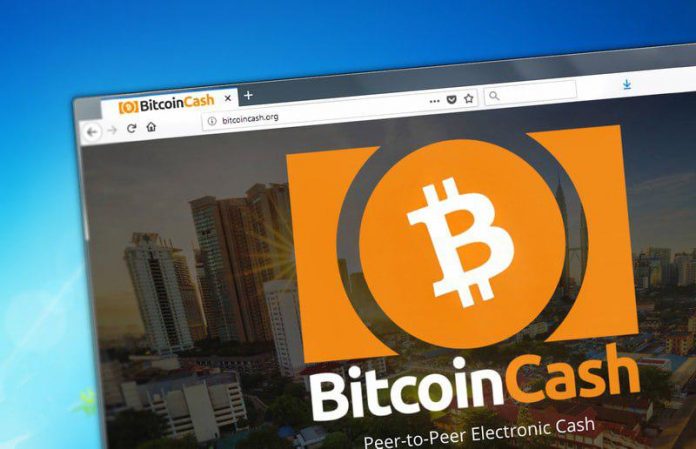A few days ago, after his speech at Le Fonti, an Italian economics TV Cryptonomist recently started a media partner with, we interviewed Franco Cimatti, aka Hostfat, to better understand his position on the feud Bitcoin Cash vs Bitcoin.
Leggi qui l’intervista a Franco Cimatti sul tema Bitcoin Cash vs Bitcoin in lingua italiana
Franco Cimatti is known in the Italian crypto community to be the President of Bitcoin Foundation Italy and to have translated the original Bitcoin software into Italian. A project that on BitcoinTalk earned him the compliments of Satoshi Nakamoto in person.
What are the reasons that lead you to prefer Bitcoin Cash to Bitcoin?
I discovered Bitcoin at the beginning of 2010.
In my opinion, today Bitcoin is continuing to become more popular thanks to the fact that it is proposed as a payment with low commissions, a feature that now no longer exists because the fees are high, and hence for a “previous fame”.
There is a risk that the market will slowly realize this change before the solutions arrive at the problems encountered by the blockage limit from which the blockchain is composed, and then abandoned and the crypto sold.
Bitcoin Cash, on the other hand, tries to keep the Bitcoin line and a vision that has worked for years, before risking to jump on new technologies and methodologies, ceasing to offer a good functioning that Bitcoin was the first to provide.
This change led Bitcoin to lose much of the market it was previously dominating.
However, the advice that I gave before the birth of Bitcoin Cash, and I continue to repeat it, is that if you are not sure of the success of Bitcoin compared to Bitcoin Cash or vice versa, you should cover the risk on both fronts. For example, at the time of the fork, do not sell BCH or BTC, i.e. do nothing. The best thing is to own the same amount of Bitcoin and Bitcoin Cash. So if you have 10 BTCs, then you must also have 10 BCHs.
Do not you fear that Bitcoin’s continuous fork rather than increasing trust can undermine the credibility of the queen of the crypts and, consequently, the entire sector?
No, the fork to update the protocol is not a problem because they guarantee the holders to remain invested in both chains (in case there is a dispute on a proposed update), and also a cleaner evolution of its protocol, its logic, maintaining a simplicity of understanding, and therefore even for an eventual arrangement.
The terror of the fork I think is the result of general disinformation carried out by subjects whose personal gain comes from a non-performing network, in the hope of obtaining a higher demand for external services on which to collect commissions. I’m talking about services that otherwise would not be used enough to justify funding and development.
Bitcoin Cash has now been twice forked, in November 2017 and May 2018, both have gone painlessly and practically invisible to users.
In general, the teams involved in Bitcoin Cash, given that they are more than one, expect to continue to update the protocol, adding new features, always through the hard fork, possibly every six months.
In your opinion, what are the reasons that in four months, from the top of December to the lows of April, did lose 85% of the value at BCH, 15% more than BT
Like all cryptocurrencies that have a smaller market than Bitcoin, a decline in market confidence or its opposite leads to higher volatility.
If a currency has a smaller market, it is more easily influenced, both upwards and downwards, since less value movement is needed to influence prices.
Now we are in a general period of lack of confidence in the market, so I find it reasonable that the minor cryptocurrencies lose more, in percentage than Bitcoin.
Conversely, in a phase of euphoria on the market it can easily happen to see Bitcoin Cash, or other minor cryptocurrencies, climb more, always in percentage, compared to Bitcoin.
Bch was overestimated in December to $ 4200 or is undervalued today at $ 1000?
I do not think it makes much sense to evaluate the dollar price of a cryptocurrency currently less, neglecting how the main market has moved, namely Bitcoin. A speech that also applies to Ethereum.
If anything, it is better to evaluate the BTC / BCH exchange rate and how much the volumes have increased or decreased in the market.
There is certainly something that has changed since the early days of the crypto: services such as Xapo, Bitmex and others have chosen to start selling BCH to their users.
Now all this big sales force is gone. They are just those of Mt Gox who still intends to sell the part of BTC.
The main risk for Bitcoin Cash now, is that the Lightning Network or systems like Liquid, maybe working differently from how they were promoted, for example also remaining centralized solutions, are still able to remove the weight of transactions to the Bitcoin network, keeping low the cost of transactions.
Even if they were imperfect solutions, the market could still approve them as buffer solutions. And ignore any future problems in the hope that other better solutions will be invented and proposed.
But this could take confidence in Bitcoin Cash?
If these solutions fail to cover the needs of users, Bitcoin is at risk, not only because of Bitcoin Cash but also for other solutions such as Ethereum or Ripple, whose developments and improvements continue unabated.



